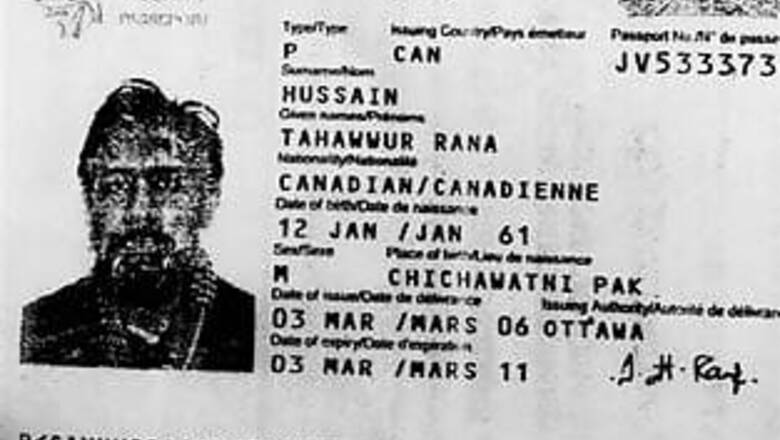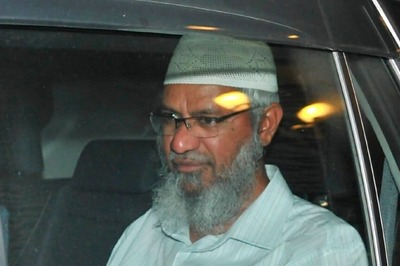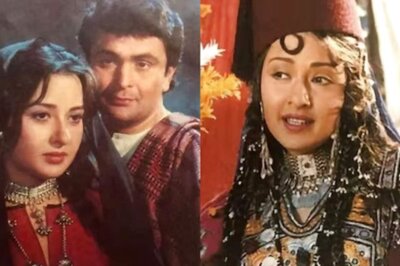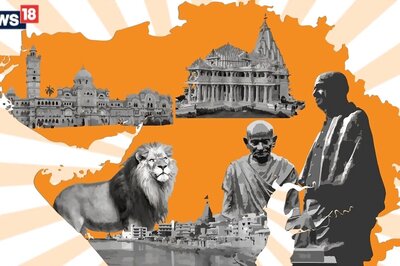
views
Chicago: Even as the Indian Government announced it was investigating the issue of a visa by the Indian Consul General in Chicago to terror suspect Tahawwur Rana, a senior diplomat has denied that any procedure was violated.
"The Consulate General of India, Chicago issued visas to Tahawwur Rana and his wife as per the established procedure for issuance of visas to persons of Pakistani origin. The visas were issued with due scrutiny of the available documents and following exact guidelines and without violating any rules/regulations of the Government of India. The same procedure was being followed by other consulates and the Embassy of India, Washington DC in USA for several years," the Consul In-Charge of Consular Services at the Chicago consulate, Vishvas Sapkal, told IANS.
Sapkal was referring to the procedure under which Rana, a Pakistani-born Canadian citizen and a woman who he claimed to be his wife, Samraz Rana Akhthar, were issued multiple entry visas by the Indian consulate in October 2008.
The visas were valid from October 31, 2008 through October 30, 2009.
Both the visas were issued "under the discretion of the Consul General" in apparent violation of rules under which clearance of the Indian Ministry of Home Affairs is required for any person born in Pakistan. Rana was born in Chichawatni and Akhthar in Bahawalpur, both in Pakistan's Punjab Province.
Rana, who ran an immigration consultancy agency and a grocery store in the heart of Devon, Avenue, Chicago's business district comprising Indian and Pakistani restaurants, boutiques and retail outlets, was sometimes referred to as 'doctor saheb', in apparent deference to his medical degree. He also owned a halal slaughterhouse in Kinsman in rural Illinois.
On October 27 - the day Rana and his alleged accomplice David Coleman Headley were arrested in Chicago - the 109 residents of the tiny town were taken by surprise when more than 100 federal agents and policemen raided the place.
Some Indian American community leaders expressed concern at the apparent ease with which a person born in Pakistan got an Indian visa. They contrasted with the "bureaucratic tangle" that many seeking Indian visas had to go through.
In the recent past, there have been public complaints of irregularities in the issue of passports by the Chicago consulate. In March, 2008, Amrit Patel, a businessman based in Milwaukee, Wisconsin, had alleged that the consulate was, in violation of rules, issuing passports to Indian nationals who have sought political asylum in the US, in exchange for bribes.
Diplomatic sources in the consulate, who confirmed the racket to IANS at that time, said each applicant paid a bribe of approximately $3,500 to have supporting documents manufactured and passports issued. Most beneficiaries were from the Punjabi American community.
To circumvent the law that denied Indian passports to nationals who sought asylum on grounds of persecution by the Indian Government, a New York based middleman would make a fake green card so that the applicant was eligible for an Indian passport.
"These people (who got the passports) appear to be opportunists. But it could easily have been someone with terrorist intentions," one anguished diplomat had told IANS at that time.


















Comments
0 comment